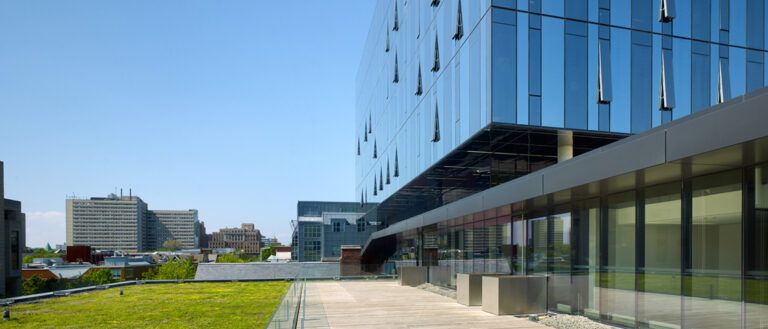Top 5 Benefits of a Sustainability Course for Working Professionals

- What are the Benefits of Taking a Sustainability Course for Working Professionals?
- How Can Sustainability Skills Enhance Career Prospects?
- What Industries Value Sustainability Skills the Most?
- How Can Sustainable Practices Contribute to Long-Term Employability?
- What are Some Examples of Sustainable Business Strategies That Can Future-Proof a Career?
Imagine standing at the forefront of the green revolution in your industry: As the job market evolves at a breakneck pace, the smartest move you can make as a working professional is to embrace sustainability. In fact, enrolling in a sustainability course is as much about gaining new knowledge as it is about future-proofing your career, aligning skills with the global shift toward environmental consciousness, and opening doors to unparalleled opportunities.
In this blog, you will learn:
- What are the Benefits of Taking a Sustainability Course for Working Professionals?
- How Can Sustainability Skills Enhance Career Prospects?
- What Industries Value Sustainability Skills the Most?
- How Can Sustainable Practices Contribute to Long-Term Employability?
- What are Some Examples of Sustainable Business Strategies That Can Future-Proof a Career?
What are the Benefits of Taking a Sustainability Course for Working Professionals?

1. Broadens the Knowledge Base
A sustainability course significantly broadens your knowledge. Furthermore, it provides insights into environmental issues and sustainable practices, thus making you a valuable asset to any organization.
2. Enhances Skill Sets
These courses enhance your skill set. Moreover, they teach you how to implement sustainable practices in building a sustainability career and various business operations, a skill increasingly sought after in many industries.
3. Increases Marketability
Completing a sustainability course, in essence, increases your marketability. As a matter of fact, employers are on the lookout for professionals who can contribute to their sustainability goals, making this qualification a significant career booster.
4. Prepares You for Leadership Roles
These courses equip you with the ability to lead sustainable initiatives, an essential skill for future leaders trying to build a sustainability career.
5. Align Your Career With Global Trends
Finally, they help align your career with global trends. Evidently, having this expertise ensures your skills remain relevant and in demand as the world shifts toward sustainability.
ALSO READ: How Sustainability Programs Can Help You Future-Proof Your Career
How Can Sustainability Skills Enhance Career Prospects?
1. Opens up New Career Opportunities
Sustainability skills open new career opportunities. Additionally, they allow you to explore roles focused on environmental management and sustainable business practices.
2. Makes You an Asset to Your Employer
Companies are increasingly required to comply with environmental regulations, and your expertise can help guide them through these challenges.
3. Enhances Problem-Solving Abilities
Sustainability skills or green skills enhance problem-solving abilities. They, furthermore, teach you to approach business challenges with a sustainable lens, which is a highly desirable trait in any professional.
4. Boosts Your Professional Network
These courses expand your professional network. In addition to this, they also help you connect with like-minded professionals and experts in the field of sustainability.
5. Increases Your Earning Potential
As the demand for sustainability experts grows, so does the value of their skill sets in the job market. These sustainability skills, therefore, also help increase your earning potential.
What Industries Value Sustainability Skills the Most?
1. Renewable Energy Sector
Sustainability skills are today an essential requirement in this space as professionals in this field are at the forefront of developing sustainable energy solutions.
2. Manufacturing Industry
The manufacturing industry is increasingly focusing on sustainable production methods. It, in fact, has been creating a steady demand for professionals with these skills.
3. Corporate Sector
The corporate sector, especially companies with a focus on Corporate Social Responsibility (CSR), seeks professionals who can integrate sustainability into their business strategies.
4. Government and Policymaking
In addition to the above, government agencies and policymaking bodies also require experts who can develop and implement sustainable policies and regulations.
5. Education and Research
The education and research sectors are key areas where green skills are highly valued. As a matter of fact, they are the pioneers driving innovation and awareness in this field.
ALSO READ: With No ‘Plan’et B, Here’s Why Sustainability in Business is Important
How Can Sustainable Practices Contribute to Long-Term Employability?
1. Ensures Adaptability to Changing Markets
To begin with, sustainability practices and thinking is here to stay. This means that professionals need to adapt to a changing market scenario. Therefore, as industries evolve to become more eco-friendly, your skills will remain relevant.
2. Promotes a Culture of Innovation
Innovation and fresh ideas are hallmarks of sustainable practices as one is forced to think of out-of-the-box solutions. This, in turn, fosters a culture of innovation. Hence, by embracing sustainability, you position yourself as a forward-thinking professional.
3. Builds a Strong Professional Reputation
A focus on sustainability shows a commitment to changing the way we do things for a bigger reason than just business success or earning profits. Focus on ethical practices and a genuine concern for immediate global crises will thus help build a strong professional reputation. And that will ensure your voice is heard in the effort to make a difference.
4. Enhances Job Security
A sustainable course enhances job security as companies are less likely to let go of professionals who contribute to their long-term sustainability goals.
5. Prepares You for Future Challenges
As sustainability becomes a central aspect of business, your expertise will be crucial in navigating these complexities. These practices thus prepare you for future challenges.
What are Some Examples of Sustainable Business Strategies That Can Future-Proof a Career?
1. Implementing Green Operations
Implementing green operations could involve initiatives such as reducing waste, optimizing energy use, or sourcing sustainable materials.
2. Developing Sustainable Products
Developing sustainable products is a significant and necessary career strategy. This means designing eco-friendly and sustainable products throughout their lifecycle.
3. Fostering Ethical Supply Chains
Fostering ethical supply chains is another essentiality today. This means ensuring that materials and labor are sourced responsibly, transparency in operations, fair trade, and so on.
4. Promoting Corporate Social Responsibility
Promoting Corporate Social Responsibility (CSR) initiatives can future-proof your career. In essence, this involves businesses ensuring that their projects minimize any harmful impact on the environment and society. In fact, the focus is on ensuring benefits are accrued holistically and not just for the business.
5. Leveraging Sustainability for Branding
Finally, professionals who can integrate sustainability into a company’s brand identity are highly sought-after skills.
ALSO READ: Strategies for Sustainable Business: The Ultimate 4-Step Guide
To conclude, taking a sustainability course offers a multitude of benefits for working professionals. It not only enhances your skill set and marketability but also aligns your career with the future of business. So whether you’re in the renewable energy sector, manufacturing, corporate world, government, or education, sustainability skills are increasingly crucial. Thus, by adopting sustainable practices and strategies, you not only contribute to a greener world but also ensure long-term employability and success.
So are you ready to join the sustainability revolution? Explore sustainability courses today and take the first step towards a greener and more prosperous future.
Write to us at content@emeritus.org






